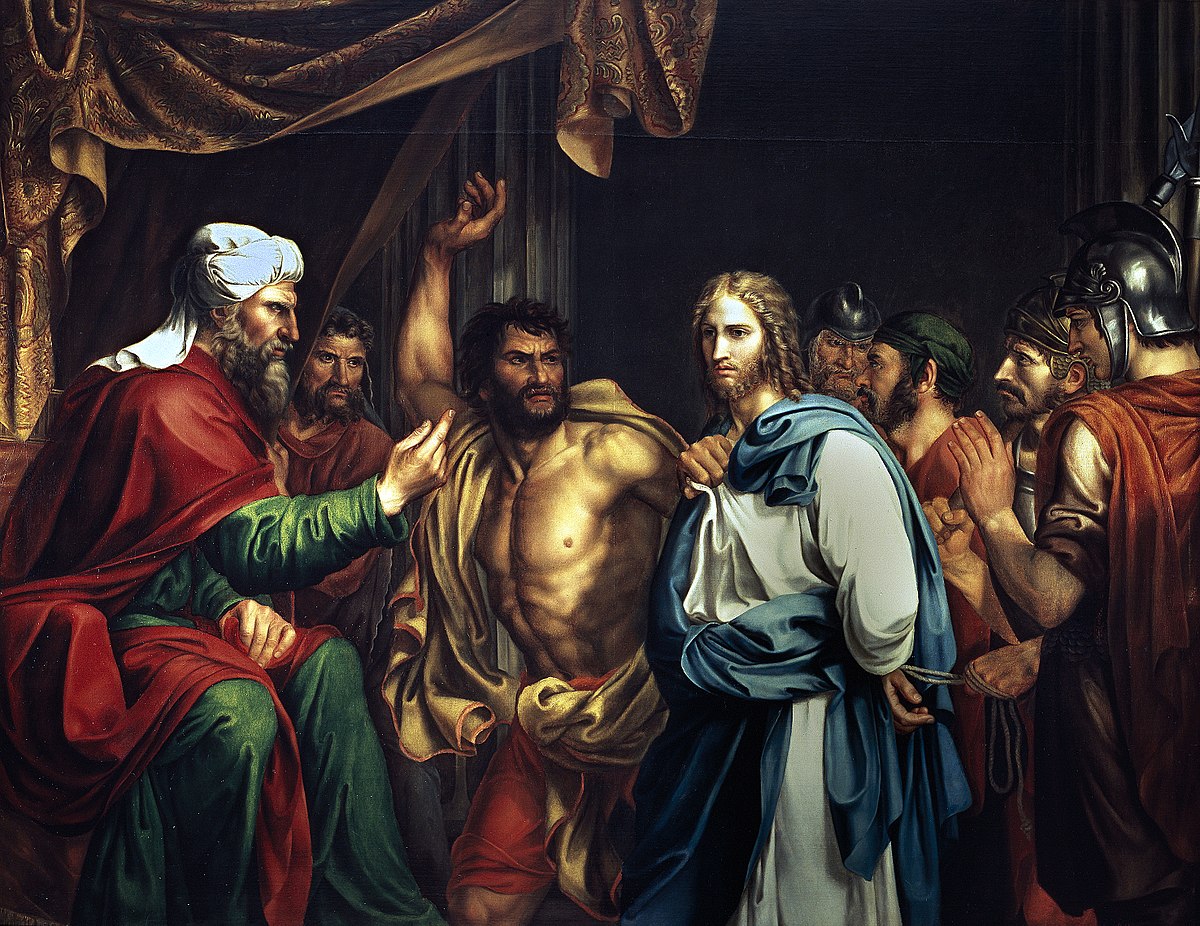Jesus Before the Council
66 When day came, the assembly of the elders of the people gathered together, both chief priests and scribes. And they led him away to their council, and they said, 67 “If you are the Christ, tell us.” But he said to them, “If I tell you, you will not believe, 68 and if I ask you, you will not answer. 69 But from now on the Son of Man shall be seated at the right hand of the power of God.” 70 So they all said, “Are you the Son of God, then?” And he said to them, “You say that I am.” 71 Then they said, “What further testimony do we need? We have heard it ourselves from his own lips.”
Observations and Reflections
 The trial of Jesus before the Sanhedrin (or at least part of it) was largely a reactionary measure to prevent an uprising among the people. The Jews were largely dissatisfied with the Romans who ruled over them and guys like Jesus were constantly popping up. Some of them revolutionaries and some of them just cooks. However, they all posed the same threat to the Jewish leaders. If they gained enough following they could threaten the Romans and cause the Romans to wage another campaign to snuff out the trouble-makers. This was very bad for the religious elite since they were often give partial blame for not controlling their own people. They were not about to let this Jesus guy upset their delicate ecosystem with the Romans.
The trial of Jesus before the Sanhedrin (or at least part of it) was largely a reactionary measure to prevent an uprising among the people. The Jews were largely dissatisfied with the Romans who ruled over them and guys like Jesus were constantly popping up. Some of them revolutionaries and some of them just cooks. However, they all posed the same threat to the Jewish leaders. If they gained enough following they could threaten the Romans and cause the Romans to wage another campaign to snuff out the trouble-makers. This was very bad for the religious elite since they were often give partial blame for not controlling their own people. They were not about to let this Jesus guy upset their delicate ecosystem with the Romans.
However, even the Scribes and Pharisees seemed willing to give Jesus a platform to speak, even if it was just a plot to catch him blaspheming….and that is exactly what they did to justify killing Jesus. But what does blasphemy have to do with upsetting the Romans? It doesn’t. The Romans were not Jewish and cared not about Jesus’ blasphemy accusations. However, at this moment they must convince each other and convince the Jewish people that this man is worthy of the death penalty and what better to charge him with than blasphemy? At least that was the plan. Now that Jesus was caught supposedly blaspheming, how would they get rid of him? The next chapter reveals the lies and the plotting of the leaders who wanted to have the Romans do their dirty work.
However, it’s important to point out that Jesus still has yet to actually blaspheme. When asked if he was the son of God Jesus simply said “you say that I am”.
 This is not the first time in which the religious rulers of this time sought to question Jesus and His claim to be the son of God. They had been seeking to catch Him in saying this so that they could have excuse to accuse Him of blaspheming and being a false teacher. Their hatred and jealousy of the authority that Jesus did truly possess, drove them to want to destroy and kill Him.
This is not the first time in which the religious rulers of this time sought to question Jesus and His claim to be the son of God. They had been seeking to catch Him in saying this so that they could have excuse to accuse Him of blaspheming and being a false teacher. Their hatred and jealousy of the authority that Jesus did truly possess, drove them to want to destroy and kill Him.
Even in asking this question, the answer that they got was not going to sway their minds in actually believing Him. There was no intention of coming to the true knowledge of who Jesus is. Their unbelieving hearts were so hardened that with the answer they got, it did not stir up a sense of joy or conviction; it only fueled their hatred for Him even more.
However, despite their hardened hearts, the message that Jesus gave still rang true. He was about to die and be seated at the right hand of God and once again we see that God’s plan for redemption was not being swayed. It was going exactly how Jesus predicted and we can see that even in this answer, Jesus still speaks the truth and presents the message of the Gospel.
Though their hearts were filled with unbelief, Jesus’s testimony was still powerful and affective. This answer was bold and clear and we can find our hope in that Jesus is still alive today and He ruling and reigning the right hand of God.
